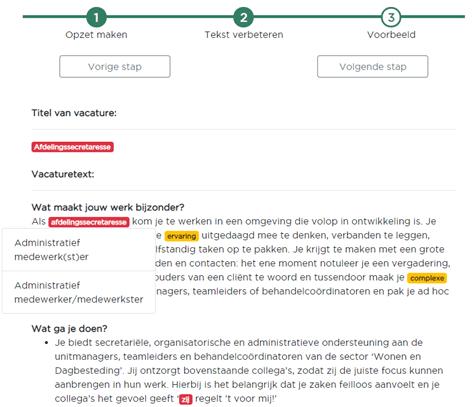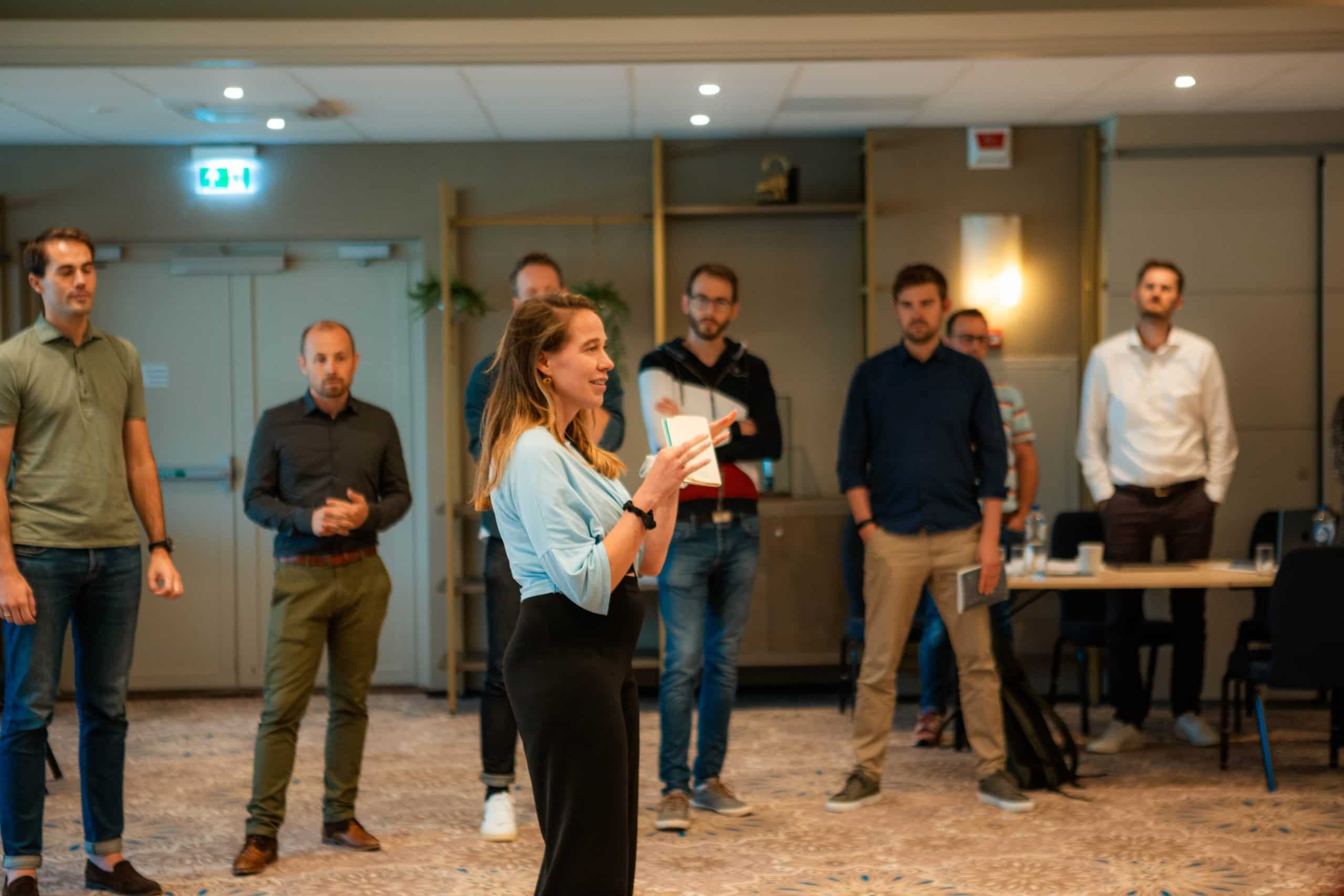
Public & society
How AI can contribute to a more inclusive labour market
Together with Stichting Alexander, an expert in participatory research for young people, we are participating in a Small Business Innovation Research (SBIR) program of the Dutch government. Namely, in the program that focuses on improving inclusivity and empowerment through Artificial Intelligence (AI). Our goal is to create a more inclusive labour market.
The Challenge: Exclusive Vacancies
Our first step was to conduct a feasibility study, which you can read more about here. We will move forward to create a working prototype of our idea for a more inclusive labour market.
Our feasibility study showed that miscommunication between employers and young job seekers is a primary cause of youth unemployment. This is an urgent problem, as throughout COVID we have seen youth unemployment rise by over 30% compared to 2019.
Although there are enough open vacancies, employers struggle to find appropriate candidates to fill them. The reason for this is that currently, vacancies are often (unintentionally) exclusive. They deter youth who are appropriate candidates because of their ethnicity, nationality, education level, gender, sexual orientation, or physical limitation. It is important that we bridge this gap in miscommunication.
The Approach: Developing an AI Prototype with Partners
During the feasibility study, we held multiple youth panels to investigate which aspects of a vacancy can be perceived as exclusive. Based on this study, we have identified the five most important themes among young people:
- exclusion based on sex, age, or origin
- possibility of the employee to learn
- clarity about salary and working hours
- insight into the company’s culture
- expectations from the employer
We also formed a testing ground that consists of a variety of organisations: Stichting Alexander, the municipalities of Gemeente Amsterdam and Gemeente Etten-Leur, Universiteit van Amsterdam (UVA), Rijksuniversitiet Groningen (RUG), and the vacancy platform Stadvacaturebank.
Our partners all have specific expertise with which they will use to assist us in developing our prototype. Firstly, we see the municipalities as official examples and precursors within the field of labour discrimination. Secondly, within the RUG, we will work together with scientific experts from the social and behavioural sciences faculty that have specialised in labour discrimination. Thirdly, we will work with the Civic AI Lab. This is an initiative of the UVA that focuses on the application of AI in socially relevant topics. Finally, our collaboration with Stadvacaturebank focuses on applying A/B testing, so that we can quantify the attractive power of our product.
The Solution: VICTORY for More Inclusive Vacancies
Our solution is VICTORY (Vacancy Inclusive Check Track Open Response to You): a vacancy scanner that improves inclusiveness within vacancies. This is done by detecting unwanted, discriminatory, and exclusive language through the use of AI.
For each of the five aforementioned themes, we will develop an automated detection solution using Natural Language Processing (NLP), using input from our partners within the testing ground. NLP is a subfield of AI concerning interactions between computers and human language. By combining these models, we plan to obtain a prototype for VICTORY. This prototype will then be tested by the affiliated municipalities and Stadvacaturebank.
Our focus is on our tool being easily accessible and user-friendly. After uploading a vacancy, unwanted and/or exclusive text is automatically detected. By clicking on the highlighted text, suggestions for appropriate alternatives are given that can directly be used as substitutes for the highlighted text. An example of this is visualised in Figure 1.

_Figure 1: A visualization of VICTORY where exclusive words (highlighted in red) and unwanted words (highlighted in orange) are automatically recognised, and suggestions for substitutes can be given by clicking on a highlighted word. _
The Impact and Benefits for Clients: An Inclusive Vacancy Market
By integrating VICTORY within existing vacancy platforms, it becomes directly accessible for a wide range of organisations. For these organisations, the costs of checking a vacancy’s inclusiveness are only a fraction of the normal vacancy costs. As a result, this provides a low entry barrier. As a result, we foresee an opportunity to change the current job vacancy landscape and thereby help to decrease youth unemployment. Moreover, VICTORY should help employers become increasingly aware that a more diverse employee base is the solution to the current tight labour market.
All in all, with VICTORY we wish to establish an inclusive labour market and consequently contribute to an overall more inclusive society.

Let’s shape the future
Do you want to know more? Get in touch with Casper Rutjes or check our contact page.
Get in touchStay updated
Subscribe to our newsletter for insights and updates.
Connect with our experts
From shaping an AI vision to scaling solutions in production, we work with you as one team to drive AI transformation that truly brings impact.
Contact us